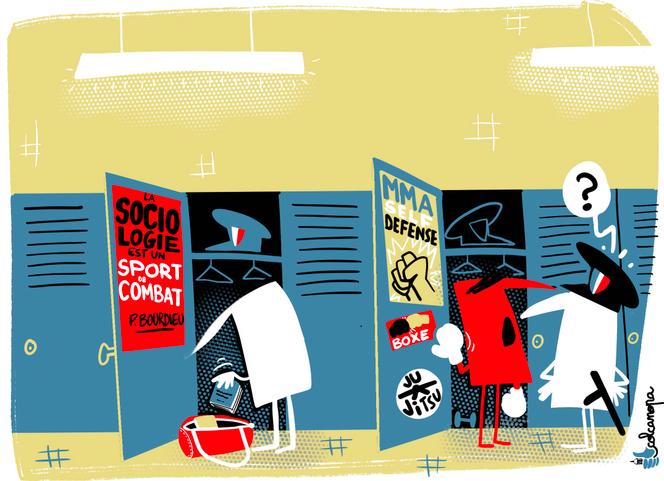


"The safety of our fellow citizens is too serious a matter to be left in the hands of the police alone." It was with this sentence, unexpected from the pen of a police officer, that a candidate for the university diploma in sociology offered by the National Police at the University of Picardie-Jules-Verne concluded his cover letter. Does the police sometimes reward humor? The application was accepted.
At a time when the issue of relations between the police and the public is particularly sensitive, this training program, open exclusively to police officers, was met with unexpected success as soon as the call for applications was issued by the Police Academy (formerly the National Police Service Central Directorate for Recruitment and Training). In just a few weeks, some 200 applications – for 50 available positions – poured onto the desk of Mathieu Fiolet, a police sociologist since 2018 and the driving force behind the program, the sign of a frenzy he admitted he hadn't expected.
"More than 100 applications presented interesting profiles and the middle management went along with it," he said. "In only 10 to 15 cases did they give an unfavorable opinion, exclusively because of service requirements or staffing needs." The candidates – 61% men, 39% women – came from the border police, public security, the judicial police and even the protection service, the authorities' bodyguards. The oldest was 62, the youngest 25, a sign of shared interest in a project that, according to Fiolet, has never aroused "any mistrust or taboo within the institution."
Starting in September, 20 students – all of them working police officers – will spend two days a month for the duration of an academic year at the Citadelle d'Amiens, where they will get 120 hours of lessons from 23 sociologist lecturers specializing in the subject. They will cover the correlations between the organization of urban spaces and the "production of order," a comparative study of relations between the police and minorities, gender in police sociability and the media's portrayal of the police: "We want to set a first milestone and use continuing education to think about an initial training program," said Elodie Lemaire, lecturer at the social sciences department at Amiens University.
Sometimes in the form of a confession, sometimes handwritten, sometimes in the form of a report with a subject and reference, the cover letters for successful candidates, which Le Monde was able to consult, testified to a wide variety of profiles and backgrounds: a former security assistant who had to abandon his studies because he came from a modest background, a female investigator in a high-tech department, a former anti-criminality brigade police officer deeply involved in the medical-social sector, or a policewoman elected to her local council. But all of them expressed their desire to have the keys to understanding their professional environment and the changes in a society with which they are in daily contact, not to mention a singular appetite for university teaching.
You have 52.8% of this article left to read. The rest is for subscribers only.
